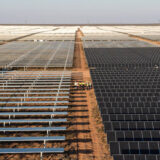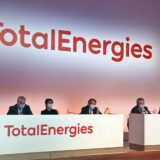Total completes upgrade of its largest refining & petrochemicals platform in Europe
French oil and gas major Total has inaugurated the new units at its Antwerp integrated refining & petrochemicals platform in Belgium. The new units have been progressively started up in the last few months. The event marks the completion of the upgrade program launched in 2013 of one of the largest and most efficient integrated refining & petrochemicals platforms in Europe.
Total said it has invested more than EUR 1 billion (USD 1.19 billion) to further improve the competitiveness of this major site located in the heart of Europe’s main markets.
Two key projects were completed at Antwerp. An investment in a new refining complex was approved for the conversion of more heavy fuel oil into low-sulfur light products. These included installation of a deasphalting unit and a hydrocracker to increase the production of clean and high-value-added products. The new refining complex will reduce the high-sulfur heavy fuel oil yield, in anticipation of the new marine fuel regulation that will take effect in 2020.
Steam cracker flexibility also was increased to maximize the processing of low cost-advantaged feedstock. A new unit was built to convert rich gases produced by the refinery into cracker feedstock. One of the two steam crackers and site logistics has been adapted to import and process ethane.
“This major project is a perfect example of our strategy, which is to constantly strengthen the industrial competitiveness of our major integrated platforms to position them among the industry’s best,” said Bernard Pinatel, president, Total Refining & Chemicals.
“It also illustrates our ambition in petrochemicals, where we aim to capitalize on the market’s growth by processing low-cost feedstock. Antwerp’s steam crackers will now be able to process up to 60% advantaged feedstock derived from gas, which is cheaper than naphtha, derived from oil.”
Total also announced a logistics project last August to connect the platform to the neighboring storage terminal via a new pipeline and the expansion of the terminal’s capacities to maximize product value.
Located in the city’s port area, the Antwerp facility has three production sites that form an integrated refining and petrochemical platform, processing 338,000 barrels of oil per day and 1.1 million tons of ethylene per year. The complex produces various petroleum products, such as gasoline, LPG, diesel, heavy fuel oil and jet fuel. It also manufactures base chemicals — olefins, C4 fractions and aromatic hydrocarbons — some of which are used to make high-density polyethylene, a polymer. Its products are used in a number of consumer and industrial applications, such as packaging and automotive components. The Antwerp platform employs around 1,700 people.











